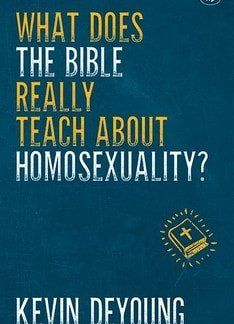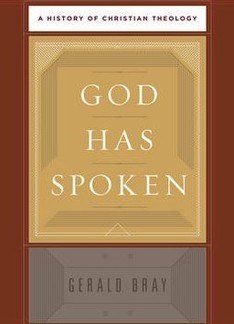If you want an answer to this question which is thorough, reasonably succinct and well-written, then this is the book for you. It covers all the main issues and objections, presenting a clear, pastoral and practical message to Christians wrestling with this unsettling issue which has been thrust upon the church in the twenty-first century.
After an introduction, ‘What does the Bible teach about everything?’, there are two main sections to the book. The first is entitled ‘Understanding God’s Word’, the second, ‘Answering objections’.
The first section begins with the created order, ‘One man, one woman, one flesh’. Then follow four chapters in which the various references to same-sex conduct are examined, the concluding sentence being, ‘Paul is saying what we find hard to hear, but what the rest of the Bible supports and most of church history has assumed: homosexual activity is not a blessing to be celebrated, but a sin to be repented of, forsaken and forgiven’ (p.67).
The first section should really resolve any discussion among Christians on the subject. However, we know that it is not as straightforward as that. So, the second section raises a number of common objections which are used by some professing Christians to justify same-sex relationships.
These objections range from appeals to God being a ‘God of love’ to the view that biblical denunciation of homosexuality does not include the ‘loving relationships’ which modern people accept.
Although the author is clear in his answers, he also writes with thoughtfulness and compassion. He recognises that some churches condemning same-sex relations do not practise much discipline for anything else, but, as he says, ‘The remedy to this negligence is not more negligence’ (p.95).
After a conclusion to the main part of the book, three helpful appendices follow. The last of these sets out ‘Ten Commitments’ that the author hopes Christians and churches will make ‘in their heads and hearts, before God and before a watching world’ (p.149).
Commitments 8 and 9 read like this: ‘We will ask for forgiveness when we are rude or thoughtless or joke about those who experience same-sex attraction’, and ‘We will strive to be a community that welcomes all those who hate their sin and struggle against it, even when that struggle involves failures and setbacks’ (p.150).
I was moved as I read these sentences about the days that lie ahead of us: ‘The church will have a tremendous opportunity to be slow to speak and quick to listen, to keep our Bibles open and our hearts too, and to speak the truth in love and show truth and grace. Let’s pray that we are up to the challenge and ready for the opportunity’ (p.147).
Paul E. Brown Halton, Lancaster






















